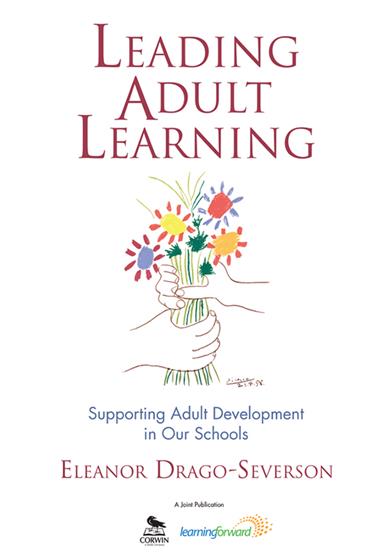Preface
Acknowledgments
About the Author
Part 1. Foundations
1. A New Model of Leadership for Adult Growth and Learning
In This Chapter
Meeting Adaptive Challenges
The Need for a New Model of Leadership
Supporting Learning Across the System
Re-envisioning Staff Development
The Research Informing This Book
A New Learning-Oriented Model of School Leadership
Organization of the Book
Summary and Conclusion
Reflective Questions
2. How Constructive-Developmental Theory Informs the Pillar Practices
Why Constructive-Developmental Theory?
Informational Learning vs Transformational Learning
Constructive-Developmental Theory: An Introduction
Why Ways of Knowing Matter When Supporting Adult Growth
Shaping School Cultures: Noble Expectations and Hidden Developmental Demands
The Holding Environment and Why It Matters in Schools
The Learning-Oriented Leadership Model
Chapter Summary
Frequently Asked Questions
Application Exercise
Reflective Questions
Part 2. Pillar Practices for Growth
3. Teaming: Growth Opportunities for Individuals, Organizations, and Systems
About Effective Teaming and Its Value
Key Elements of Successful Teaming
The Team as a Source of Individual Growth and Development
Why and How School Leaders Employ Teaming
Team Structures That Nurture Adult Development
Implementing Teaming: Lessons From the Field
Chapter Summary
Frequently Asked Questions
Application Exercise
Reflective Questions
4. Providing Leadership Roles: Learning and Growing From Leading Together
About Providing Leadership Roles
Developmental Benefits of Providing Leadership Roles
Examples of School Leaders? Use of Providing Leadership Roles
Cases and Lessons From the Field
Chapter Summary
Reflective Questions
5. Collegial Inquiry: Engaging in Shared Dialogue and Reflection on Practice
Collegial Inquiry: A Kind of Reflective Practice
Collaborative Cultures
How Collegial Inquiry Attends to Developmental Diversity
Why and How School Leaders Employ Collegial Inquiry
Practices School Leaders Use to Initiate Collegial Inquiry
Case Study: One Principal?s ?Rare and Unique Opportunity? to Engage in Reflective Practice Over Time
Convenings: Personal Case-Based Discussions That Support Collegial Inquiry
Chapter Summary
Application Exercises
Reflective Questions
6. Mentoring: Building Meaningful and Growth-Enhancing Relationships
About Effective Mentoring and Its Value
Mentoring and Developmental Diversity
Implications: How Our Way of Knowing Influences the Way We Mentor
Why and How School Leaders Employ Mentoring
An Example of a Mentoring Program: Lessons From the Field
A Protocol for Mentoring Relationships That Nurture Adult Development
Chapter Summary
Application Exercise
Reflective Questions
7. Implementing the Pillar Practices: Cases From the Field
Case 1: Mentoring Principals and Assistant Principals
Case 2: Coaching School Leaders
Case 3: Leading Teachers by Listening
Case 4: Supporting Adult Development Through Schoolwide Transformation
Case 5: The Pillar Practices, Hawaiian Style
Chapter Summary
Application Exercise
Reflective Questions
8. The School as Learning Center: Stepping Forward With Hope
Meeting Adaptive Challenges by Building Developmental Capacity
The Promise of Building Schools as Learning Centers
Implications of the New Learning-Oriented Leadership Model
Attending to and Valuing Adults? Ways of Knowing
Putting the New Learning-Oriented Model Into Practice
Stepping Forward
On the Gift of Giving
Research Appendix
Glossary
Endnotes
References
Index



